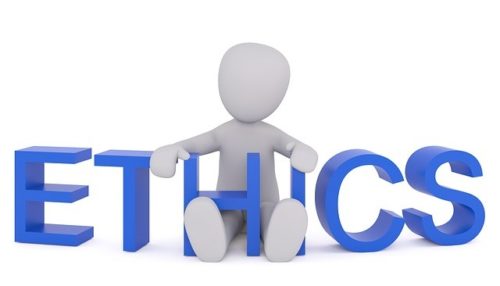- Introduction to business fundraising
- Types of capital and sources
- Introduction to Private Placements
- Discussion of new crowdfunding regulations
- Valuation considerations
- Creating a great pitch deck
-
A Lawyer's Guide to Raising Capital In this timely, and compelling, CLE program attorney, Todd Kulkin, presents “A Lawyer’s Guide to Raising Capital”. The program begins with an overview of business fundraising and the types of capital and sources. The program continues with an introduction to private placements. Mr. Kulkin then provides a discussion of new crowdfunding regulations and valuation considerations. The program concludes with how to create a great pitch deck. This program is for any attorney who needs to raise capital or or has clients who need to raise capital. Agenda:
-
Philosophy of a Business Legal Counselor In this timely, and compelling CLE program attorney, Todd Kulkin, presents “Philosophy of a Business Legal Counselor”. The program begins with an overview of business law philosophy and an explanation of various business models. The program continues with an introduction to the popular and effective business models. Mr. Kulkin then provides a discussion of how to determine liability and business intake. The program concludes with the importance of scalability and presenting risk. This program is for any attorney involved in business or has clients who are involved in business. Agenda
- Philosophy of Business Law Corollaries
- Business Models 101
- Introduction to popular business models
- Determining liability from a business model
- Business intake
- The importance of scalability
- Presenting risk
-
Introduction to Non-Profit Law In this timely, and compelling CLE program attorney, Todd Kulkin, presents “Introduction to Non-Profit”. The program begins with an overview of non-profit basics and the philosophy of non-profit practice. The program continues with an introduction to the tools of the trade and how to mitigate risks. Mr. Kulkin then provides a discussion on private inurement. The program concludes with an explanation of non-profits for business, religion, and politics.This program is for any attorney involved in non-profit law or has clients who are involved in a non-profit business. Agenda
- Non-Profit Basics
- Philosophy of Non-Profit Practice
- Tools of the Trade
- Non-Profits: Mitigating Risk
- Private Inurement
- Non-Profits and Business
- Non-Profits and Religion
- Non-Profits and Politics
-
Information Technology for Lawyers In this timely, and compelling program, attorney Russell Jackman presents “Information Technology for Lawyers”. Mr. Jackman begins the program explaining how and why to update a law office computer system and uses windows as an example. The program continues with an overview of backups, cloud services, and firewalls. Mr. Jackman then discusses security tips and case management systems. Attorney Jackman concludes the program going over recent IT trends and fads. This program is for any attorney who has a computer. AGENDA:
- Upgrading Office System
- Windows
- Backups
- Cloud Services
- Antivirus/Firewalls
- Security Tips
- Case Management Systems
- Trends and Fads
-
Criminal Mitigation: Pre-Plea and Pre-Sentencing Strategies
Course Description
In this timely and compelling CLE course, attorney and forensic psychologist Mark Silver, presents “Criminal Mitigation: Pre-Plea and Pre-Sentencing Strategies”. Mr. Silver starts the program with an overview of various humanizing processes that a criminal law attorney can utilize to better advocate for their client. Mr. Silver then discusses how the use of psychological analysis can have a more positive impact on a client and increase their chances of success. This program is a must for any attorney. Learning Objectives/Agenda:- Summarize the definition and applicability of mitigation to a defendant's case
- Identify the multi-purpose uses of mitigation in the course of defense
- Examine how criminal mitigation can best assist one's client
- Describe which clients most benefit from criminal mitigation and why
-
Borderline Personality Disorder: Pre-Plea and Pre-Sentence Criminal Mitigation Strategies
Course Description
In this timely and compelling CLE program, attorney and forensic expert Mark Silver presents “Border Personality Disorder: Pre-Plea and Pre-Sentencing Criminal Mitigation Strategies”. Borderline Personality Disorder is among the most important mental health issues for lawyers. As many as 6% of the population carry the diagnosis of Borderline Personality Disorder. It’s important for the criminal defense lawyer to be able to recognize borderline personality disorder in clients and know when to refer the case for an evaluation and how to use aspects of this disorder for mitigation purposes. This program is a must for any attorney. Learning Objectives/Agenda:- Recognize the criteria of Borderline Personality Disorder as among the most important mental health diagnoses with criminal defendants
- Identify the challenges and obstacles of defending such clients
- Examine how the criteria of this disorder can serve as a direct defense and/or mitigating factors in the advocacy process
-
Law of Corporate Information: New Issues on Old Foundations - Faculty: William Nolan This program reviews some of the key concepts and developments in the broad range of legal issues relating to corporate information, starting with relatively older issues and progressing towards newer issues, with a common theme that is not new – aligning the management of information with business needs is an underlying principle in all of these areas. AGENDA: Protecting Companies Trade Secrets Uniform Trade Secrets Act Monitoring Employee Technology Use Employee Electronic Communication Outside Company Preventing and Responding to Data Breaches - HIPPA and FTC Act Importance of Building an Information Control Culture
-
Who’s in Charge? The Ethics of Listening, and Not Listening to Clients In this riveting, timely, and compelling CLE program, attorney, Dan Abrams, discusses an attorney's ethical obligation when it comes to listening to their clients. The program begins with a discussion of who is in charge - the client, the attorney, or somebody else? Attorney Abrams then dives into the applicable ethical rules associated with listening to clients. Mr. Abrams continues the program covering possible ethical implications - when to use your best judgment and when to listen to your client? The program continues with an explanation of proper investigations and the ethical rules associated with investigating and ghostwriting. The course concludes with an overview of a client's possible diminished capacity. This CLE course is a must listen for any attorney who may have a client or hope to have a client in the future. Agenda
- Introduction - Who’s in Charge?
- Lawyer
- Clients
- Someone else?
- Rule 1.2
- When a Lawyer and Client Do not agree
- Rule 11 - Limits to Attorneys Deference
- Rule 3.1
- Reasonable Investigation
- Civility
- Ethics of Ghostwriting
- Diminished Capacity
- Rule 1.6
- Introduction - Who’s in Charge?
-
Non-Competes: Taking Your Drafting and Enforcement Strategies To the Next Level In this timely and compelling CLE program, attorney, William Nolan discusses issues with regard to non-compete agreements and their impact. Attorney Nolan discusses drafting, enforcement, and strategies of non-competes. He begins the program with an overview of agreements and their purpose. Mr. Nolan then covers, in detail, different state laws and how they drive strategy. He concludes the program by covering common questions and then reviews a sample non-compete agreement. This program is for any attorney who may want to learn more about non-compete agreements Agenda Basic Overview Non-Competes State Law Driving Strategy Strategy Issues Enforceability Common Questions Sample Agreement Overview
-
As an attorney, you are in the business of relationships. Whether you are in a big law firm that has to participate in “Beauty Contests” (RFPs) or a solo practitioner, whether you are a new attorney, a mid-level associate or managing partner, people do business with People “they know, like and trust.” The relationships you create will allow you to build the practice you want and networking is still the best way to create those relationships. You will specifically learn: How to define networking in new way Why networking is the best way to become a Rainmaker What skills you can learn networking that will benefit every area of your practice Where to network for the best results How to work a room Fun tips and tricks to use to break the ice How to network if you are an introvert An overview of how use social media for networking purposes The Rules of Professional Conduct you need to know to keep your networking ethical as well as interesting
-
Basic Considerations in Assessment of an Oil and Gas Lease







